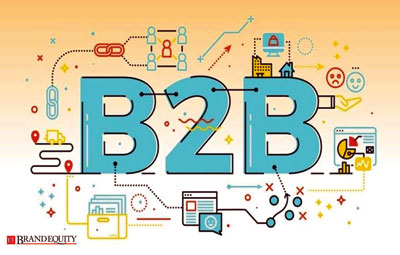Brand Equity in the B2B sector
View(s):Over the last three articles the attention was on B2C brand equity which is mainly to do with end consumers. However, as far as the B2B Brand Equity is concerned, it’s not exactly the same measures that should be taken into consideration.
One of the key differentiating factors between B2C and B2B is that, purchasing decision of a B2C customer is not essentially a rational decision and it can be either rational or emotional as well. As it’s evident, the end-consumers decision can be emotional as she doesn’t need to explain it to someone else nor does she have to follow a rational decision-making model in arriving at a decision to purchase a brand/product. In contrary, a B2B set up is drastically different, in fact it’s the polar opposite. It’s not an individual decision, rather it’s a decision-making body. Therefore, the purchasing decision of a B2B buyer will always go through a rational decision-making process.
One of the best examples to cite is the purchase of a cake of soap for individual consumption vs purchase of soap for a hotel. Individual consumer would consider the emotional queues of advertising to social media influencers to various other measures which are allowing her to decide on a particular brand for which she doesn’t have to explain to another. As opposed to that, if she is sitting in the purchasing department of a hotel where the purchasing decision of soap will more or less be a function of factors such as; price, service quality, delivery time, credit terms etc. As it’s evident, it’s mostly a rational decision than an emotional decision. Therefore, it’s clear that the concept of Brand Equity cannot be equally applicable in both B2B and B2C as the behavior of the decision makers in both categories are not the same or not on equal grounds.
However, in a more practical sense, there can be an emotional element which can seep into the decision-making body of B2B purchasing. It’s the particular sales person who handles the customer or the job. Based on how the customer is handled and how they are serviced, there can be an emotional element built in the minds of the B2B buyers too.
Therefore, it’s safe to say that B2B brand equity can be a function of the following factors.
The reputation of the corporate brand – if it’s a cake of soap that the buyer needs to buy, he/she would consider and have some level of confidence in a reputed corporate brand or institute than an unknown corporate entity. Example in the case of purchasing soap for a hotel, an entity would be glad to buy it from a known corporate brand such as Unilever or Hemas in the local context. As far as the purchasing decision is concerned, whether it’s Lux or Velvet will not be a big concern. However, in the case of B2C markets, Lux or Velvet will matter more than the corporate brand.
The level of service and dependability of the sales person – Even if the corporate brand or the consumer brand of a particular organisation matters, it’s important to understand the impact of the individual sales person’s role on the purchasing decision. It can be the trust in-built in the decision makers by the seller which makes the sale happen in the B2B brand equity. Specially the ability of the individual sales person to sort issues out, and provide convenience will be adding more value in creating B2B equity. Trust and dependability will add more value to B2B brand equity.
Product Quality and customisation – Quality of the product plays a vital role than brand reputation in the B2B context. At the same time, the amount of customisation that can be brought into the picture can create value in the B2B sector.
Sales History – Just like in the context of B2C, in the B2B context too, the number of years that the customer has used the services of a given organisation or a brand will also be a deciding factor. The longer the duration of relationship, the stronger the bond between the two parties and better the ties between the two parties as well.
Therefore, it’s evident that, even though there can be a spillover effect of B2C branding on B2B brands, it’s mostly a logical purchase than an emotional decision. Therefore, the dynamics that work around the two concepts are not the same. It’s important for any organisation to understand the difference, as it will help them in handling different aspects of B2B and B2C brand equity in creating value for their organizations.

HitAd.lk is the best and biggest mobile phone market in Sri Lanka, and we guarantee you will find what you need here from our extensive listing of mobile phones for sale in Sri Lanka. Whether it’s a budget-priced smartphone for communication, or higher end features with advanced connectivity, there are many different options from which to choose from on our site!


